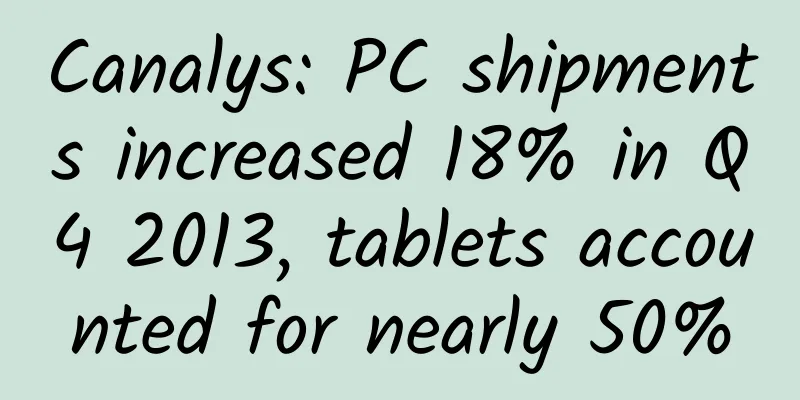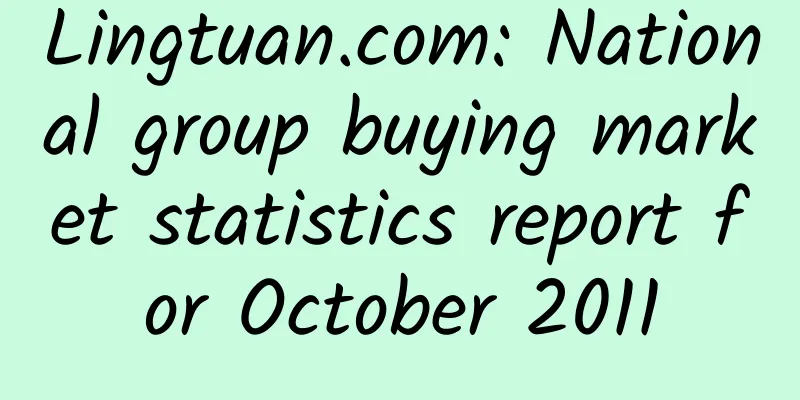Canalys: PC shipments increased 18% in Q4 2013, tablets accounted for nearly 50%

|
Opportunities lie in Google's operating systems and commercial PCs The global PC market grew 17.9% in the fourth quarter of 2013, driven by a seasonal surge in tablet shipments. Tablet shipments grew 65.2% year-over-year to 76.3 million units, accounting for 48.3% of the total PC market. Except for tablet shipments, shipments in all regions fell 6.9% year-over-year. |
<<: Mashable: Seven tips to improve your e-commerce strategy
>>: econsultancy: Improving user experience when products are out of stock
Recommend
The efficacy and function of star anise
Chinese medicine has different effects on our bod...
Butter rice cake is very popular, but not everyone can eat it——
Review expert: Wang Xiaohui, deputy senior engine...
The efficacy and function of water ash bark
The bark of the water ash tree is a frequently us...
What is the best way to drink American ginseng?
Korean ginseng is a common Chinese medicinal mate...
Blue warning for heavy rain! Heavy rains are coming during the flood season. What should we do if we encounter urban waterlogging?
At 10:00 today (July 3), the Central Meteorologic...
World Beauty Day丨The most cost-effective "beauty" method, you may have been doing it wrong
November 7th of each year is World Beauty Day, wh...
The efficacy of Cordyceps sinensis and wolfberry wine
Cordyceps and wolfberry are both Chinese herbal m...
The functions, effects and characteristics of morning glory
When we were children, we often picked a morning ...
People who don't like to open windows are more likely to have brain atrophy? These 5 common habits are very harmful to the brain, and you do them every day
Do you usually open the windows? People who don’t...
The efficacy and function of Chinese magnolia
Many people are not very clear about the effects ...
In order to prevent the bird from being "reckless", do this now
Birds are the most common "animal neighbors&...
Industrial or craft beer? Look for these two points to easily buy cheap and good beer
In the hot summer, besides air conditioning and w...
The efficacy of Chinese herbal medicine Angelica dahurica
Angelica dahurica is an expensive Chinese medicin...
National Bean Curd Geography
Written by Wei Shuihua Header image | pixabay Due...
After the discovery of the Higgs boson, what else are particle physicists looking forward to?
Ten years ago, on July 4, 2012, the European Orga...









